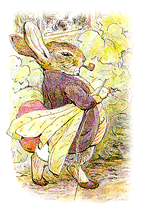http://www.asyura2.com/09/news8/msg/910.html
| Tweet |

ノーベル医学生理学賞、京都大学の山中伸弥教授らが受賞
2012年 10月 8日 21:34
トップニュース
中国大型連休中の小売売上高、伸び率は昨年から鈍化=CCTV
9月の中国サービス部門PMIは54.3に大幅上昇=HSBC
比政府とイスラム勢力がミンダナオ和平で合意、新自治政府設立へ
米民間宇宙船「ドラゴン」打ち上げ成功、初の商業輸送
[ストックホルム 8日 ロイター] スウェーデンのカロリンスカ研究所のノーベル賞委員会は8日、2012年のノーベル医学生理学賞を京都大学の山中伸弥教授と英国人のジョン・ガードン博士に授与すると発表した。あらゆる細胞や臓器に分化増殖できる能力を持つiPS細胞を開発した研究が評価された。
© Thomson Reuters 2012 All rights reserved.
関連ニュース
ノーベル賞の賞金が2割減額に、財団の財政悪化で 2012年6月12日
ECBは利下げ実施する余地ある=IMF専務理事 2012年6月5日
イランが新型遠心分離機を開発、大統領は核燃料棒を研究炉に装填 2012年2月16日
中国、イラン核兵器研究めぐり平和的な解決求める=外務省 2011年11月9日
2011年ノーベル経済学賞、米2教授の受賞決まる 2011年10月11日
http://jp.reuters.com/article/topNews/idJPTJE89700220121008
Interview
"My goal, all my life, is to bring this stem cell technology to the bedside, to patients, to clinics ..."
Telephone interview with Shinya Yamanaka following the announcement of the 2012 Nobel Prize in Physiology or Medicine, 8 October 2012. The interviewer is Adam Smith, Editorial Director of Nobel Media.
[Shinya Yamanaka] Hello
[Adam Smith] Hello, may I speak to Professor Yamanaka please?
[SY] Yes, speaking.
[AS] Oh hello, this is Adam Smith calling from the Nobel Prize website in Stockholm. We have a traditional of recording very short interviews with new Nobel Laureates. Would you be able to speak for just a very few minutes?
[SY] Okay.
[AS] Thank you. First of all, our sincere congratulations on the award of the Nobel Prize.
[SY] Oh, thank you very much. It is a tremendous honour to me. Especially I heard that I am going to share the prize with Dr. John Gurdon, so I feel more honoured, because I respect him a lot.
[AS] He established the principle of gene conservation in differentiated cells, half a century ago. And so there was this very long run up then very rapidly you have transformed the field by creating induced pluripotent stem (iPS) cells.
[SY] Yes, well I was able to initiate my project because of his experiments fifty years ago. Actually, he published his work in 1962. And that was the year when I was born. So I really feel just great, feel honoured.
[AS] There’s a lovely symmetry about that. And it shows the progress of science, and one can’t be too rushed in expecting things to happen.
[SY] Indeed.
[AS] And indeed, it’s the fiftieth anniversary of your birth and of his publications.
[SY] Oh yes exactly. Yes. I just turned out to be fifty.
[AS] Congratulations on that also, then.
[SY] Thank you very much.
[AS] May I ask, what were you doing when the call from Stockholm came?
[SY] Well actually I was at home. I was doing some housework. So I was very surprised.
[AS] So you were actually doing some housework, you were cleaning the house or something?
[SY] Yes, exactly. So I didn’t expect at all.
[AS] Can you recall your initial reaction to the call?
[SY] Well, so I was kind of alarmed by my secretary, who is still at my office. So she got a call from Stockholm, and asked about my phone number. So she kind of gave me an alert. But still, you know, I was not sure at all. So when I received the call, I was surprised. Almost, you know, I just thought wow, it’s very ... a phonecall from Stockholm. I just couldn’t believe it.
[AS] That’s lovely. That’s very nice. Indeed it hasn’t been long. It was only in 2006 that you created the first iPS cells, so it hasn’t been long.
[SY] So I strongly feel that this is, that I am able to receive this award because of John Gurdon and also many other researchers in the field. This field has a long history, starting with John Gurdon. So I feel very lucky. I may have played some important role in this long history, but it was not myself who initiated this field. So that’s my feeling right now.
[AS] I understand and it’s so nice that the two of you are tied together by the award and will be in Stockholm together in December to accept it.
[SY] Yes, that’s great, yes.
[AS] When you come to Stockholm we have a longer chance, happily, to interview you and so talk more.
[SY] Okay
[AS] But I just wanted ask you one final question, which was what your greatest hopes for stem cells technologies are at the moment? What do you hope will be the first benefit?
[SY] Well, I will bring this technology to clinics. I really want to help as many patients as possible. As you may know, I started my career as a surgeon 25 years ago. But it turned out that I am not talented as a surgeon. So I decided to change my career, from clinics to laboratories. But I still feel that I am a doctor, I am a physician, so I really want to help patients. So my goal, all my life, is to bring this technology, stem cell technology to the bedside, to patients, to clinics.
[AS] Thank you. And I understand that iPS cells will, in fact, be going into the clinic for trials next year for the first time.
[SY] Yes, indeed. Yes.
[AS] Okay. Well, thank you very much indeed. And I wish a lovely evening of celebration.
[SY] Okay, thank you so much
[AS] It was a pleasure to talk to you. Thank you. Congratulations again.
[SY] Thank you very much. Bye bye.
[AS] Bye.
http://www.nobelprize.org/nobel_prizes/medicine/laureates/2012/yamanaka-interview.html
|
|
|
|
この記事を読んだ人はこんな記事も読んでいます(表示まで20秒程度時間がかかります。)
- ノーベル賞共同受賞のガードン博士、学生時代は「落ちこぼれ」 MR 2012/10/09 16:06:54
(0)
▲このページのTOPへ ★阿修羅♪ > ニュース情報8掲示板
|
|
 スパムメールの中から見つけ出すためにメールのタイトルには必ず「阿修羅さんへ」と記述してください。
スパムメールの中から見つけ出すためにメールのタイトルには必ず「阿修羅さんへ」と記述してください。すべてのページの引用、転載、リンクを許可します。確認メールは不要です。引用元リンクを表示してください。